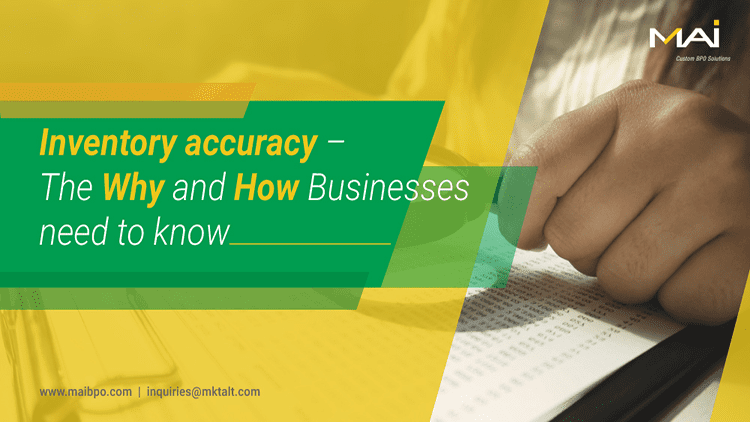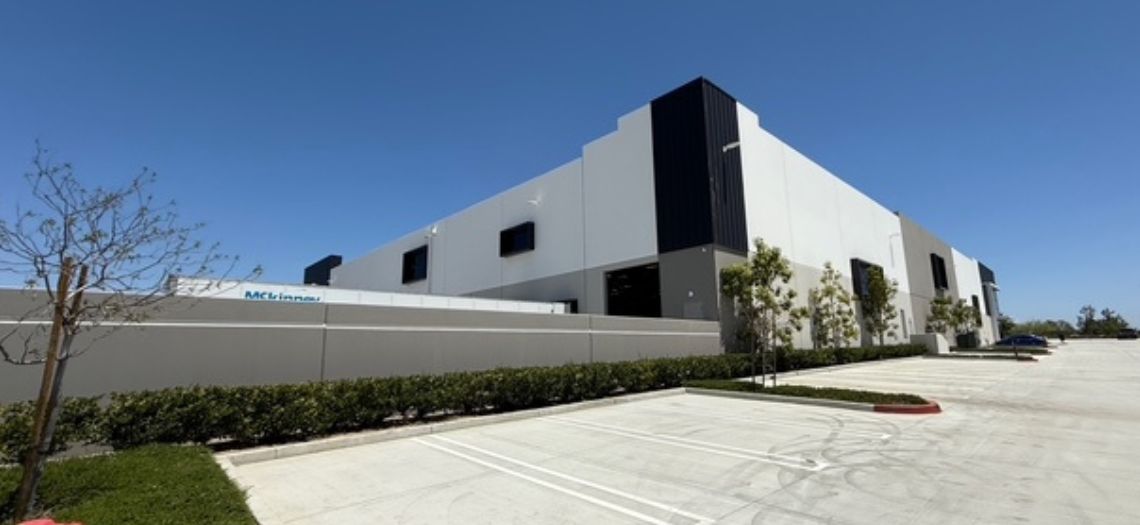Inventory Accuracy: Why It Matters & How to Achieve It
Regardless of business size the quantity of the stock carried, inventory accuracy must be ensured at all times.
Customers turn red with anger when their orders are not fulfilled on time. Inside salespeople struggle to push orders down the pipeline when there is no inventory to mark their requisitions against. Production comes to a standstill or at least slows down to snail pace when inventory is not available in sufficient quantities.
Inventory accuracy is not a feel-good option, but a business mandate that businesses cannot take for granted.
Inventory Accuracy: Why It Matters & How to Achieve It
There is a popular saying among manufacturers, “Inventory is money sitting in another form.” Having an accurate track of inventory is as important as having an accurate track of your business finances.
Inventory management and profitability have a direct relationship. In fact, the gross profit from trading and manufacturing activities of a business is reliant on the value of inventory. Even a slight variation can impact the bottom line of the business.
Hence, the inevitable need to ensure inventory accuracy at all times. It has some great benefits too, which are outlined below:
Strengthens Working Capital
Working capital is the total funds required to run the day-to-day affairs of the business. From paying immediate liabilities to procuring inventory for production, working capital is critical to the business solvency of a business. Inventory accuracy ensures that the business has a pulse on its inventory levels at all times. This helps make accurate forecasts for inventory procurement. Eliminating unnecessary purchases helps save more funds to be spent for other business requirements. A positive working capital adds to the overall financial health of the business.
Improves Operating Margins
Inventory accuracy streamlines warehouse space usage. An optimal usage of the warehouse translates into reduced inventory carrying cost (warehouse rent + transportation + octroi, etc.). As inventory carrying costs reduce, the business is able to achieve more operating margins. Also, it helps in achieving cost efficiencies through bulk purchases and EOQ (Economic Order Quantity) procurement models.
Avoids inventory pitfalls
Stockout and deadstock pile up are two common inventory management pitfalls that every manufacturer or business that deals with inventory falls into. Poor inventory management or rather inadequate information about real-time stock levels is what leads to these pitfalls. Maintaining proper inventory records and ensuring its access by all stakeholders is the ideal way to avoid such pitfalls.
Ensures timely re-ordering
Accurate inventory levels help the business know when it is time to reorder fresh supplies or stop procurement in case maximum stock levels are achieved. Without accurate inventory information, the business would not be able to make calculated purchases. In the long-run, it would inflate the inventory procurement costs as each order carries order processing, carriage octroi, carriage and ancillary costs.
How to ensure Inventory Accuracy
Now that we have seen the benefits of inventory accuracy, it is necessary to know how these benefits can be achieved. Most of these benefits are low-hanging fruits, which can be gained with some moderate tweaks in the inventory management process.
Record all material movement
Right from the moment the stock enters the warehouse and all throughout its journey within the warehouse, all movements must be recorded. Traditionally, inventory movement was recorded using stock ledgers, which had separate columns for open balances, receipts, issues and closing balances. In today’s digitized environment, this task is made simpler thanks to RFID embedded bins or cloud-based systems that give real-time inventory information. You can opt any of these systems, but ensure material movement is recorded at all times.
Use a bin system to maintain inventory count
In warehouses and in retail shop floors, each inventory SKU would be assigned a bin. The bin usually carries a bin card where that specific SKU’s stock ledger is maintained. If this bin card system is followed on a consistent basis, inventory accuracy can be ensured at all levels. The bin card is the original document from which final inventory records are compiled. Hence, fixing it first fixes rest of the inventory accuracy problems.
Conduct sample-based physical inventory count
Experts suggest taking frequent physical inventory counts to tally differences between physical stock and book stock. But, for a business that has multiple warehouses spread across a region, and each warehouse spanning into the size of several football grounds put together, conducting a physical stock-taking exercise can be difficult. An ideal way to do it is to ensure inventory accuracy would be through:
- Random selection: Select randomly high-value inventory items and count their physical stock
- Geographic location: Conduct stock-taking for each location, one at a time
- Rank-based selection: Conduct stock-taking for products that are fast movers or high value
Parting Thoughts
Inventory is the lifeline that makes or breaks business profitability. Without accurate information about inventory levels, a business cannot manage to run its show efficiently. Inaccurate inventory information will lead to wrong planning and forecasting, which would impact operations negatively.
While ensuring inventory accuracy can be a tough job, the processes and policies above will help ensure inventory accuracy throughout the supply chain.
MAI Fulfillment Your 3PL & Warehousing Solution
MAI Fulfillment is a privately held third party logistics (3PL) company in Chicago specializing in warehousing, and omnichannel fulfillment services. As an experienced outsourced provider, we provide value-added solutions designed to help companies build and grow.
The MAI business model offers clients the efficiency and convenience of dealing with a single accountable resource for a wide range of services. MAI areas of specialization include:
- Custom B2B and DTC warehouse and multichannel fulfillment solutions
- Multi industry support
- Technology support
A wide range of service offerings, strategic problem-solving skills, and experience make MAI a valued partner to a broad range of Fortune 500 companies. “Quality” is more than just a word here – it’s the foundation of how we conduct business and an integral part of the processes and metrics we use to deliver value to our clients every day.
Contact MAI today to learn more!




